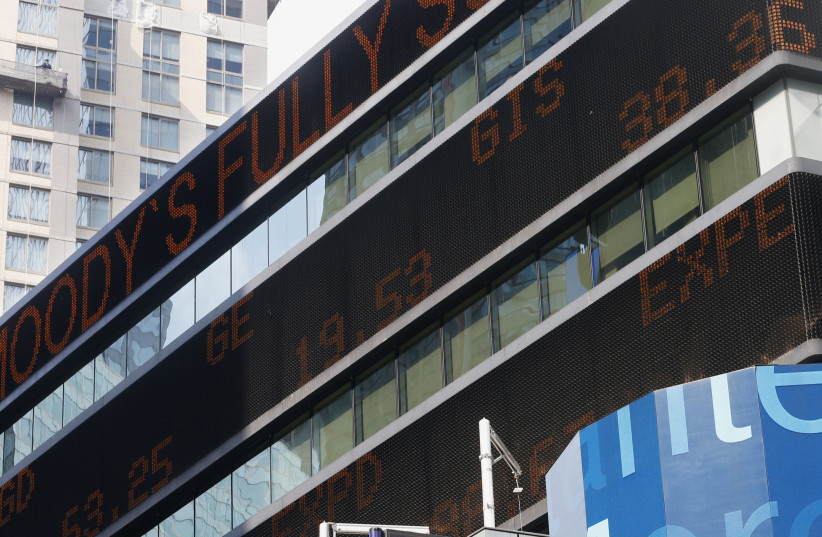"We shall defend our island, whatever the cost may be, we shall fight on the beaches, we shall fight on the landing grounds, we shall fight in the fields and the streets, we shall fight in the hills; we shall never surrender."
– Winston Churchill
This past Friday, the Moody’s credit-rating agency cut their rating on Israel. In their report, they wrote, “The main driver for the downgrade of Israel’s rating to A2 is Moody’s assessment that the ongoing military conflict with Hamas, its aftermath and wider consequences materially raise political risk for Israel as well as weaken its executive and legislative institutions and its fiscal strength, for the foreseeable future.”
The report continues, “While fighting in Gaza may diminish in intensity or pause, there is currently no agreement to end the hostilities durably and no agreement on a longer-term plan that would fully restore and eventually strengthen security for Israel. The weakened security environment implies higher social risk and indicates weaker executive and legislative institutions than Moody’s previously assessed. At the same time, Israel’s public finances are deteriorating and the previously projected downward trend in the public debt ratio has now reversed. Moody’s expects that Israel’s debt burden will be materially higher than projected before the conflict.”
While parts of the report have a political bent to them, let us put those aside for now and focus on the economy. There is no question that the war with Hamas has increased government spending and widened the budget deficit. It has also taken its toll on economic growth, already slow due to higher interest rates due to surging inflation, as businesses in both the north and south closed down and 300,000 reservists temporarily left the workforce to fight.

Interestingly, the markets have taken the downgrade as a nonevent as both the shekel and Tel Aviv stock indices didn’t budge after the news was released. Moody’s took a very short-sighted view of the current economy and discounted the future. As a result of the hundreds of thousands fighting or just the general malaise the locals are feeling in the aftermath of October 7th, Israelis haven’t been spending much money at all over the last 4 months.
I believe that this has caused a surge in pent-up demand and when reservists start being released – which is happening now – and at some point, the war ends, unprecedented consumer spending will take place helping drive the economy to very strong growth.
THE STAGE is being set for a huge economic rebound in the second half of 2024 and the first half of 2025. Keep in mind that the reservists aren’t unemployed, rather they are getting paid, and as such the money is sitting in their bank accounts ready to be spent on things that haven’t been purchased over the last 4 months. Add to the mix that the Bank of Israel will continue to cut interest rates over the coming months, which will also be a boon for businesses large and small, as well as give a kick-start to the reeling real estate market which has suffered from high rates for more than a year.
The situation has many similarities to the first year of COVID-19 and we made it through that crisis just fine, and with our credit rating from Moody’s intact. We had negative growth, 35% unemployment, and high levels of government spending, and then as the virus faded, people went back to work and a sense of normalcy came back, people spent, real estate surged, and the economy was fine. I think the same scenario will happen now and our starting position is much better, as we don’t have 35% unemployment.
As reported in The Jerusalem Post, Avi Simhon, director of the National Economic Council in the Prime Minister’s Office, told Reuters: “The ratings reduction was not warranted since the deterioration of public finances is due to the war with Palestinian Islamist group Hamas in Gaza and they believe the economy will recover quickly once the war is over.
As a result of the war that the central bank estimates will cost Israel some NIS 255 billion ($70b.) through 2025, the budget deficit is expected to jump to 6.6% of gross domestic product in 2024, with the debt to GDP ratio projected to reach 67% this year. Such levels are far lower than in many top European countries and are below those in the pandemic when the rating was not lowered. The deteriorating public finances are not something fundamental. It’s a temporary thing. We have a war and we have to finance it.”
Simhon added: “As long as the war stays contained to Gaza and does not expand to Hezbollah in Lebanon the budget deficit in 2024 will be lower than 6.6%. “With a major war in the North, it could be higher but it’s not going to be like the times of Corona (when it was close to 12%).”
Do your research but it could very well be that the Israeli economy is on the eve of a spectacular economic boom. While Moody’s may be worried, investors should focus on the facts and that’s reason to be bullish.
May all the families of the fallen be comforted. May the hostages be released. May the injured have a speedy recovery. May our dear soldiers be safe and protected.
The information contained in this article reflects the opinion of the author and not necessarily the opinion of Portfolio Resources Group, Inc. or its affiliates.
Aaron Katsman is the author of Retirement GPS: How to Navigate Your Way to A Secure Financial Future with Global Investing. www.gpsinvestor.com; aaron@lighthousecapital.co.il.
